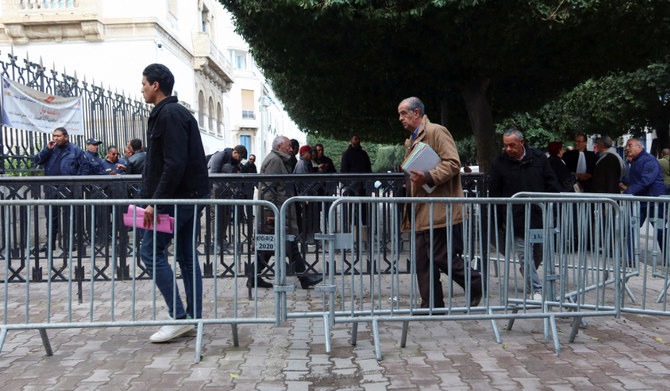A Tunisian judge released two major political opponents of President Kais Saied about five months after they were jailed on charges of plotting against state security, According to their lawyer, Monia Bouali.
Chaima Issa and Lazhar Akremi were released on Thursday after being detained together with 20 other political figures in February as part of a crackdown on the country’s opposition. Both were charged with “conspiracy to undermine state security.”
Issa is a member of the Salvation Front, Saied’s primary opposition alliance that has organized anti-Saied protests over the last two years. Akremi, a lawyer who served as a minister following Tunisia’s 2011 revolution, has been a vocal critic of Saied.
Before the judge’s verdict, dozens of prisoners’ families protested near the court in Tunis, holding up pictures of the detainees and calling for their release.
After her release from prison, Issa chanted, “Down with the coup. Down with Kais Saied”.
“The injustice against the rest of the prisoners must end … Imprisoning the dissidents will not solve Tunisia’s problems,” Issa told Reuters.
“I paid the price, but we must continue,” she added.
The defence team for Issa and Akremi said in a statement that the investigating judge decided to “release Chaima Issa and also responded to the defence committee’s request for the release of Lazhar Akremi”.
The appeal court judge rejected the team’s request for the release of other political opponents.
The main opposition parties have decried their leaders’ arrests as politically motivated, and rights groups have urged authorities to free the detainees.
Saied has described them as “terrorists” and traitors and says judges who free them would be abetting their alleged crimes.
In a dramatic July 2021 action against the only democracy to emerge from the Arab Spring upheavals, Saied froze parliament and dismissed the cabinet. From September 2021 to March 2023, he ruled by decree, claiming that it was necessary to save the country from chaos and corruption.
His detractors have labeled the movie a “coup,” while human rights organizations have criticized a “witch hunt” intended at “repressing” freedom of expression in the North African country.
In addition to the political turmoil precipitated by Saied’s power grab, Tunisia has been rocked by a severe financial crisis and is seeking external assistance.
On Wednesday, European parliamentarians expressed their opposition to any “unconditional agreement” between the European Union and Tunisia, citing “the excesses” of Saied.
They called on the Tunisian authorities to “release arbitrarily imprisoned opponents, defend the rights of Tunisian citizens and support their struggle for democracy”.









